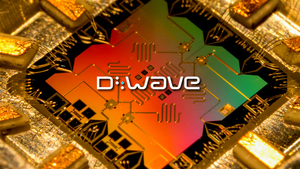What to Know About the Future of Cancer Treatment
By:
StatePoint Media
January 31, 2023 at 01:00 AM EST
SPONSORED CONTENT -- (StatePoint) For many patients, initial cancer treatments are not enough, and residual cancer cells that survive these treatments can cause relapse. But new research is seeking to harness the immune system to target residual disease, thereby helping patients avoid relapses and live longer. “Using a novel mechanism of action that directly targets the cancerous cells, we are hoping to enhance the ability of NK cells – that is natural killer cells – to eliminate residual disease,” says RJ Tesi, MD, CEO of INmune Bio Inc., (NASDAQ: INMB), a clinical stage immuno-oncology company. “NK cells are part of our innate immune system and are essential for survival. In addition to directly killing infected cells and cancer cells, NK cells facilitate crosstalk between the innate and adaptive immune system.” As Dr. Tesi goes on to explain, NK cells play a critical role in killing cancer cells that remain after such treatments as surgery, radiation, and chemotherapy. While modern cancer therapies can effectively eliminate most cancer in a patient, to eliminate all cancer cells, the patient’s immune system needs to do its part and kill the residual disease. When cancer cells evade NK cells by making themselves effectively invisible, the immune system can’t identify them and therefore can’t kill them. This failure of the immune system to eliminate residual disease is the cause of cancer relapse. INKmune, INmune Bio Inc.’s lead product, activates resting NK cells into a primed state to kill cancer. Currently in clinical trials, this therapy is already showing promising results. INKmune-primed NK cells have demonstrated an ability to kill several types of cancer cells. To learn more, visit inmunebio.com. “Chemotherapy and radiotherapy reduce the tumor burden, but are not always curative alone,” says Dr. Tesi. “To eradicate the disease and turn cancer relapsers into survivors, we also need an effective immune response to control residual cancer cells left behind after primary treatment.” ***** Photo Credit: (c) Ridofranz / iStock via Getty Images Plus More NewsView More
D-Wave: Time to Buy the Dip? Or is the Fall Just Starting? ↗
November 24, 2025
Via MarketBeat
Tickers
QBTS

Hims, Block, and NRG Just Launched Huge Stock Buybacks ↗
November 24, 2025
Via MarketBeat

Retail Earnings Roundup: Walmart Scores, Target Slumps in Q3 ↗
November 24, 2025
Via MarketBeat

Via MarketBeat

Why Circle Stock Is Falling—and Why Some Analysts See Big Upside ↗
November 24, 2025
Via MarketBeat
Recent QuotesView More
Stock Quote API & Stock News API supplied by www.cloudquote.io
Quotes delayed at least 20 minutes. By accessing this page, you agree to the Privacy Policy and Terms Of Service.
© 2025 FinancialContent. All rights reserved.
|
